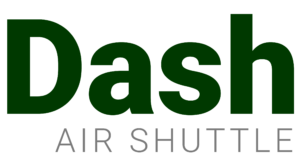Extra assistance

We do our best to provide service to Guests with physical limitations, but due to the size and design of Backcounty Aviation's (BCA) aircraft, there are some services that we are prohibited from offering in accordance with FAA safety regulations and the US DOT regulations.
For information on the Department of Transportation Part 382 and/or to contact the DOT, please view the Air Carriers Access Act.
Assistance in the airport
Please come to our ticket counter and request any assistance that you may need through the terminal or to our aircraft. Many of our airports are staffed by only one employee, and so we may not have someone readily available to assist you from the curb into the airport. If you need assistance into the airport, please call our reservation support line from your cell phone (206-558-2500) and we can contact the ticket counter to request assistance for you.
Assistance getting to the gate and aircraft
The aircraft requires ground loading, due to its size and configuration. Contact our reservations office for information about airport facilities.
Assistance boarding or disembarking our aircraft
Guests must be able to ascend three steps to board the aircraft. Physical limitations preclude the use of jet bridges, lifts, boarding chairs or other feasible devices to enplane a Guest needing assistance. When this happens, Dash Air employees will provide reasonable assistance. This assistance includes steadying a Guest or providing a helping hand as the Guest ascends or descends the stairs, assistance in getting to or from the seat, and assistance with loading and retrieving carry-on items and other assistive devices stowed on board. Employees are not permitted, however, to lift or carry Guests on board the aircraft or assist with medical services. As the safest seating arrangement for such Guest may vary with the situation, Dash may offer to pre-board the Guest or may suggest boarding the Guest last for access to the most accessible seat.
Wheelchair assistance in the airport
At most airports we have wheelchairs available to help you from the ticket counter to the gate area. Please advise our reservations agent if you will need wheelchair assistance within the airport.
Traveling with your own wheelchair
One wheelchair or mobility assistive device per Passenger will be accepted and transported at no additional charge. Early check-in is recommended for all Guests with assistive devices so that there is adequate time to load the device on board and offer any special assistance that may be needed.
Aircraft-based Limitations: Due to space limitations of the aircraft, only collapsible, non-motorized wheelchairs (and other non-battery-powered mobility assistive devices) are accepted. Wheelchairs and other mobility assistive devices are assigned the highest boarding priority and every reasonable effort will be made to transport all Guest wheelchairs and other mobility assistive devices on the same flight as the Guest. There may be times, however, when space, weight and safe storage constraints may limit the number of devices which may physically and safely fit onto the aircraft. When this happens, we will coordinate with the Guest and offer the best solution available.
Traveling with a car seat
Children under the age of 2 can sit on laps, and/or child seats can be used if the parent wishes to purchase an additional seat for the lap child and they provide a FAA/DOT approved child seat. Over 2 years of age, the seat criteria is listed below.
The safest place for your child on an airplane is in a government-approved child safety restraint system (CRS) or device, not on your lap. Your arms aren't capable of holding your child securely, especially during unexpected turbulence.
The Federal Aviation Administration (FAA) strongly urges guests to secure your child in a CRS or device for the duration of your flight. It's the smart and right thing to do so that everyone in your family arrives safely at your destination. The FAA is giving you the information you need to make informed decisions about your family's travel plans.
Government-approved Child Aviation Safety Restraint System (“CARES”) harnesses typically used for children between 22 and 44 pounds are also approved for use in the aircraft cabin on all aircraft.
